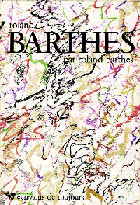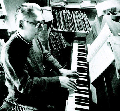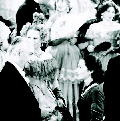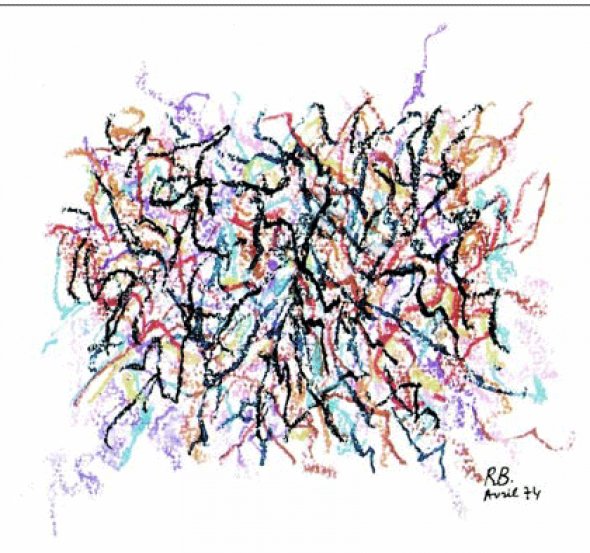Reinvention without End: Roland Barthes
Peter Suchin reappraises the prismatic works of Roland Barthes – an author who defied his own pronouncement of the designation’s demise. From the Marxist of Mythologies to the ‘scientist’ of S/Z, Suchin discovers a writer who understood the pleasure of text
 >> Roland Barthes par Roland Barthes, Seuil, 1975In her obituary of Roland Barthes Susan Sontag observed that Barthes never underlined passages in the books he read, instead transcribing noteworthy sections of text onto index cards for later consultation. In recounting this practice Sontag connected Barthes’ aversion to this sacrilegious act of annotation with ‘the fact that he drew, and that this drawing, which he pursued seriously, was a kind of writing.’[1] Sontag was making reference to the 700 or so drawings and paintings left by Barthes – usually regarded as a literary critic and social commentator – at his death as the result of a road accident in 1980.
>> Roland Barthes par Roland Barthes, Seuil, 1975In her obituary of Roland Barthes Susan Sontag observed that Barthes never underlined passages in the books he read, instead transcribing noteworthy sections of text onto index cards for later consultation. In recounting this practice Sontag connected Barthes’ aversion to this sacrilegious act of annotation with ‘the fact that he drew, and that this drawing, which he pursued seriously, was a kind of writing.’[1] Sontag was making reference to the 700 or so drawings and paintings left by Barthes – usually regarded as a literary critic and social commentator – at his death as the result of a road accident in 1980.
Occasionally reproduced in his books, most visibly on the cover of Roland Barthes par Roland Barthes (1975), but never exhibited during his lifetime, these paintings were, as Barthes himself pointed out, the work of an amateur. ‘The Amateur’, he noted, ‘engages in painting, music, sport, science, without the spirit of mastery or competition[...] he establishes himself graciously (for nothing) in the signifier: in the immediately definitive substance of music, of painting[...] he is – he will be perhaps – the counter-bourgeois artist.’[2]
If Barthes was happy to be an amateur he nonetheless gave this word the weight of a serious critical designation. The practice of an amateur is ‘counter-bourgeois’ insofar as it manages to escape commodification, having been made for the pleasure implicit in production itself, rather than for monetary gain or cultural status. Barthes’ paintings relay an indulgence in the materiality of the brush or pen as it moved across the support, in the body’s engagement with the texture of paint, the physical trace of a shimmering track of ink or a riotous collision of colours. ‘I have an almost obsessive relation to writing instruments’, he reflected in 1973. ‘I often switch from one pen to the other just for the pleasure of it. I try out new ones. I have far too many pens – I don’t know what to do with all of them.’[3] For Barthes, who wrote all his texts by hand, this concern with the tools of writing was connected with his experience and recognition of the intimate materiality of artistic production. Each day he found time to sit at the piano, ‘fingering’ as he called it, and had taken singing lessons in his youth and acted in classical Greek theatre whilst a student at the Sorbonne in the 1930s. The ‘corporeal, sensual content of rock music...expresses a new relation to the body’, he told an interviewer in 1972: ‘it should be defended.’[4]
Barthes’ perceptive analyses of French culture, collected together in Mythologies (1957), were, like his other early writings, overtly Marxist. This approach was later superseded by one in which his prose mimicked the ostensible neutrality of scientific discourse. S/Z (1970), for example, mapped five cultural codes onto a Balzac short story which had been divided up by Barthes into 561 fragments or ‘lexias’, the text being taken to pieces as though it were being examined in a laboratory. His tour de force semiological study of The Fashion System (1967) had relied on a similarly ‘objective’ approach to the linguistic niceties of fashion writing. But the practice of the later Barthes – the Barthes of The Pleasure of the Text (1973), A Lover’s Discourse (1977), and Camera Lucida (1980) – revealed the earlier publications to be complicated machines for the generation of diverse forms of language, modes of writing, as opposed to ‘matter of fact’ commentaries or critiques. When considered together as a corpus or oeuvre, Barthes numerous books suggest an emphatically idiosyncratic individual and author whose ‘political’ and ’scientific’ writings were but elements in a constantly shifting trajectory, stages in a literary career whose central motivation was the repeated reinvigoration of language. Like that of Proust, whose work he described as being for him ‘the reference work...the mandala of the entire literary cosmogony’[5], Barthes’ life might be said to be inseparable from this practice of writing. ‘The language I speak within myself is not of my time’, he mused in The Pleasure of the Text; ‘it is prey, by nature, to ideological suspicion; thus, it is with this language I must struggle. I write because I do not want the words I find...’ (p. 40). This act of writing was not so much a reflection of the ‘self’ Barthes happened to be at a given moment as a means of self-invention, of, in fact, reinvention without end. To work on language was, for Barthes, to work upon the self, engaging with received ideas, cultural stereotypes, and cliches of every kind in order to overthrow or reposition them, moving around and through language into another order of action and effect. ‘All his writings are polemical,’ suggests Sontag, but a strong optimistic strand is clearly evident too: ‘He had little feeling for the tragic. He was always finding the advantage of a disadvantage.’[6]
But if one was, as a human being, condemned to relentlessly signify, to make, and be oneself made into ‘meanings’, Barthes seriously pursued in his watercolours and assiduous scribbles the impossible position of the exemption of meaning. If these paintings are ‘a kind of writing’, they are forgeries, fragments of false tongues and imaginary ciphers, closer to what Barthes himself termed ‘texts of bliss’, rather than ‘texts of pleasure’, though positioned somewhere between the two.
This opposition, which runs through The Pleasure of the Text, defines texts of pleasure as constituting an attractive but ultimately mundane aesthetic form, whilst those of bliss or, in the French, jouissance, comprise a radical break, not merely within language but within the very fabric of culture itself. Such a binary opposition can be found elsewhere in Barthes’ writings. The terms ‘studium’ and ‘punctum’ in Camera Lucida are a case in point, the former referring to the commonality of photographic representations with which we are today surrounded, whilst ‘punctum’ designates a puncture or disturbance in the viewer. ‘A detail overwhelms the entirety of my reading; it is an immense mutation of my interest...By the mark of something, the photograph is no longer “anything whatever”.’ (p. 49) With such an emphasis on the reader’s or viewer’s individual response Barthes moved closer and closer to autobiography and the subjective format of the jotting or journal. Most famous for his 1968 essay ‘The Death of the Author’, the acutely particular tone of Barthes’ writing later appears to contradict the loss of authorial authority celebrated in this immensely influential work.[7] Rather than ‘critic’, ‘literary historian’ or ‘structuralist’, the appelation ‘writer’ looks to be the most succinct for all the different ‘Barthes’ we encounter in his writings. He is finally all these things and none, ‘a subject in process’, to use a term from his student Julia Kristeva.[8] Yet Barthes recognised that the artist or author can never control meaning, that the last word always belongs to someone else: ‘to write is to permit others to conclude one’s own discourse, and writing is only a proposition whose answer one never knows. One writes in order to be loved, one is read without being able to be loved, it is doubtless this distance which constitutes the writer.’[9]

 >> ‘The bourgeoisie listen to the piano with their eyes closed.’ Photo: Bassouls/Sygma. >> Roland Barthes with Marie-France Pisier, playing the role of Thackeray in AndrÈ TÈchinÈ’s film Les Soeurs BrontÎ. Photograph: Les Cahiers du Cinema.Both from Louis-Jean Calvet, Roland Barthes, Polity Press, 1994
>> ‘The bourgeoisie listen to the piano with their eyes closed.’ Photo: Bassouls/Sygma. >> Roland Barthes with Marie-France Pisier, playing the role of Thackeray in AndrÈ TÈchinÈ’s film Les Soeurs BrontÎ. Photograph: Les Cahiers du Cinema.Both from Louis-Jean Calvet, Roland Barthes, Polity Press, 1994
[1] Susan Sontag, ‘Remembering Barthes’, in Sontag, Under the Sign of Saturn, Writers and Readers, 1983, p. 173[2] Roland Barthes by Roland Barthes, Hill and Wang, 1977, p. 52. All dates for Barthes’ books given in the text are those of the original French editions. Dates for English translations, from which quotations are taken, are supplied in these notes. Several hundred of Barthes’ paintings are reproduced in the catalogue Roland Barthes: Carte Segni, Electa (Milan), 1981[3] Roland Barthes, The Grain of the Voice, Jonathan Cape, 1985, p. 178[4] Barthes, The Grain of the Voice, p. 152[5] Roland Barthes, The Pleasure of the Text, Hill and Wang, 1975, p. 36[6] Sontag, Under the Sign of Saturn, p. 177[7] The essay is reproduced in several anthologies, including Roland Barthes, Image-Music-Text, Fontana, 1977[8] Julia Kristeva, Revolution in Poetic Language, Columbia University Press, 1984, p. 22[9] Roland Barthes, Critical Essays, Northwestern University Press, 1972, pp. 278 - 279
Peter Suchin has contributed essays and reviews to Art Monthly, Frieze, Noisegate, Variant and many other journals. His paintings are discussed in Paul Crowther, Critical Aesthetics and Postmodernism OUP, 1993
Mute Books Orders
For Mute Books distribution contact Anagram Books
contact@anagrambooks.com
For online purchases visit anagrambooks.com








